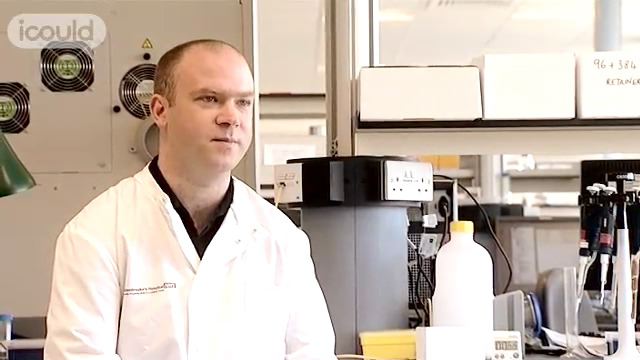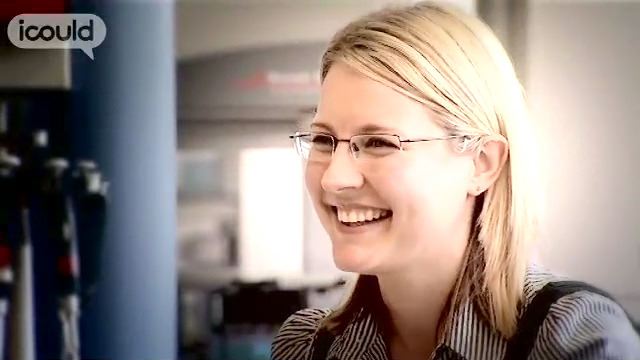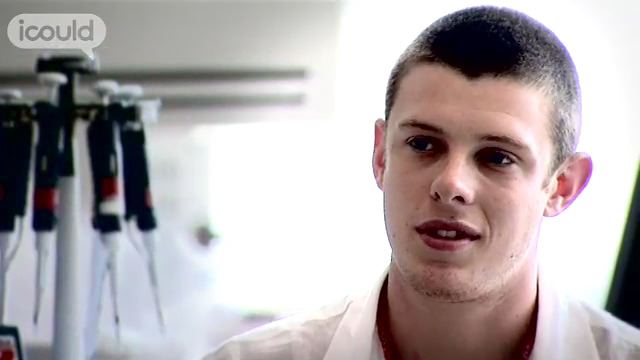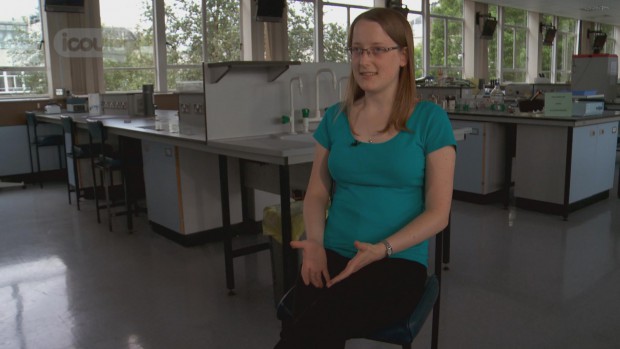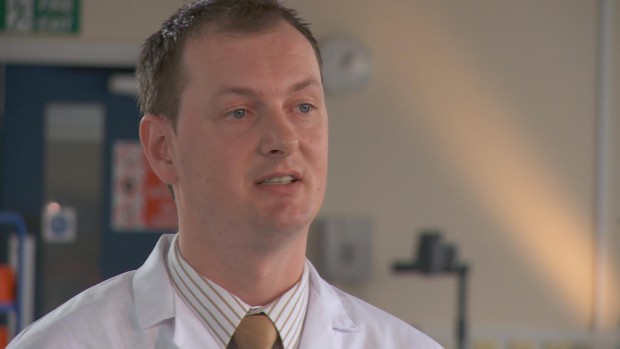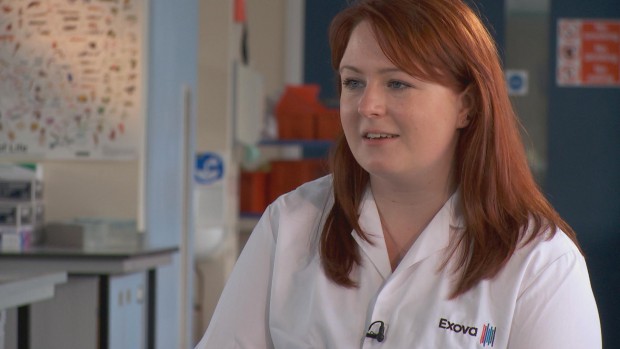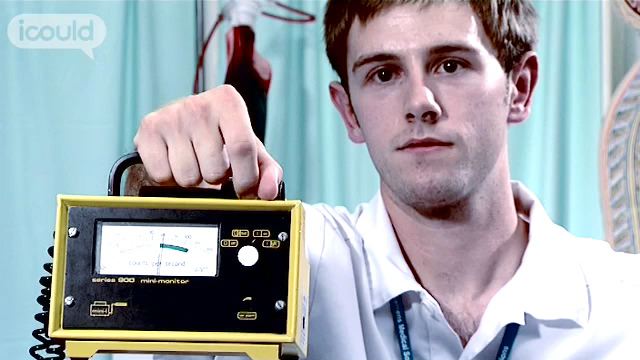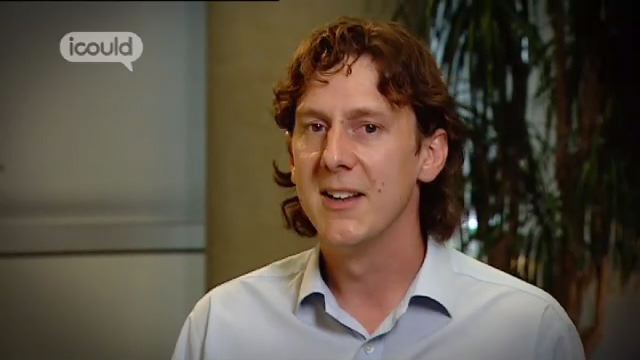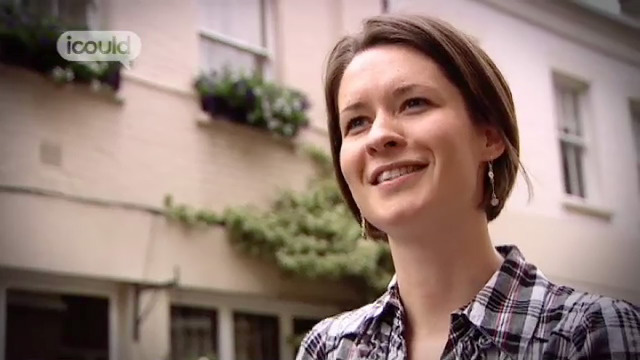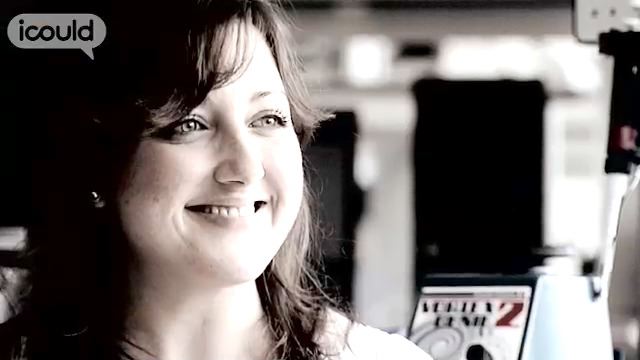Assistant Practitioner Neuropathology
Addenbrookes Hospital
Olly G
00:00:01 My name’s Olly G and I’m an Assistant Practitioner in Neuropathology at Addenbrookes Hospital. it’s almost like a medical laboratory assistant but with more responsibility. I do anything from making up solutions to assisting cut-ups. Most of the cut-ups actually come from the post mortem. We will be given the brain from the post mortem to analyse, to try and basically come up with the cause of death. I assist the pathologist and the consultant within the cut-ups, so it’s my responsibility to get every bit of tissue into blocks, everything numbered up, see the whole process through, till it’s on a slide and it’s back in the consultant’s hands and he’s looking at it down a microscope.
00:02:15 Like most seven year-old boys who watch Man United and Chelsea on TV, they want to be the footballer earning that money and playing the sport they love to do, and I suppose at the time yes, sport was my main love. My Dad was a footballer back in his day and that’s where the sports side of things came into it, and when I was a lot younger I loved squash. I really wanted to make a really good go of it, but then I got diagnosed with Osgood Schlatters in my knees, which isn’t really that bad but when you’re looking for sponsorships. No-one’s really going to touch you because they don’t know if it’s going to last very long, or if it’s going to affect how you play. It was a big blow at the time because it was something I loved doing, and the school I was at was so sports orientated, so then to be told that I couldn’t go on and play the sport I loved was a bit disheartening, but it sort of more got me interested in sort of what was wrong with me – why did my knees go when they did? What caused it? That’s really when I thought I want to go into science, but I didn’t have a clue where to go to start off with, I thought go and do my A-Levels, and then go off to Uni, do a degree, and then see where that leaves me. But that never actually happened in the end, because my A-Level results were really quite bad, and I loved the practical side of things but of course the exams I just never coped with. You know I was thinking God, you know, I’ve come out with no qualifications, I’m really going to get hit hard here, you know, no-one’s going to want to take me on, I’ve got nothing to show for what I’ve done for the last couple of years – well very little to show for what I’ve done – but I stuck to it, and I always knew that science was where I wanted to go. So when I finally finished sixth form I was looking for jobs. And one came up for a job in cytology. And I applied, I thought well I can’t lose anything really, I want to go work in the labs, it’s my one love when I was at sixth form to work in a laboratories. So a week later I had a phone call back saying I had the job, and a year and a half later the neuro position came up within the lab – neuropathology – you actually saw the tissue, you were there holding everything, so it was more of a hands on experience that I wanted. I was given the nod and that’s where I am now.
00:03:02 I’ve met so many new mates. I mean within the first six months of working in the hospital I’d met one guy that loved his music, which I love as well, and we were going to see a load of rock gigs like around the area, which was absolutely awesome, like most of my mates weren’t really into that, and a lot of them were at Uni at the time as well so to meet all these new guys, I mean it’s really cool.
00:03:28 To actually see a brain for the first time, and see the pathologist cut it up, it was – it was pretty incredible to actually be able to help with it, and to diagnose these different diseases and to see everything within it, it’s just unbelievable, it’s just a great thing to do. You go home with a good feeling that, you know, you’ve done something good today and, you know, you’ve hopefully helped someone along.
00:03:52 They said there’s an opportunity that if you work really hard, and you show yourself, they will fund a degree. At the moment they’re funding for my foundation course at Anglia Ruskin University. So once I’ve got that under my belt, which I’ve passed the first year, I can then progress on to do my Biomedical Science degree, and have the full degree paid for, plus the experience in the lab, and the full time wage on top of it. So coming out of sixth form with no A-Levels – I mean there are still so many opportunities out there to really go for it. I can never see myself ever discovering something or, you know, doing something ground-breaking, but – just in myself to know that I’ve helped, you know, a couple of people, you know, get better and within their treatment – I’d just be happy with that really, yeah.
00:04:41 ENDS
Olly G wanted to make a go of sport, particularly squash, when younger but a knee condition previented this. Olly is interested in the sciences, “I wanted to go work in the labs.” His A level results were poor but he found work in a laboratory where “at the moment they are funding my foundation course… and I can progress on to doing my biomedical science degree.”
More information about Laboratory technicians
The UK average salary is £29,813
There are 37.5 hours in the average working week
The UK workforce is 47% female and 53% male
Future employment
- Sets up and assists with the construction and the development of scientific apparatus for experimental, demonstration or other purposes
- Prepares organic and inorganic material for examination and stains and fixes slides for microscope work
- Operates and services specialised scientific equipment, undertakes prescribed measurements and analyses and ensures that sterile conditions necessary for some equipment are maintained
- Records and collates data obtained from experimental work and documents all work carried out
- Maintains and rotates stock and supplies
- Disposes of chemical and biological waste safely
- Keeps up to date with new technical developments
